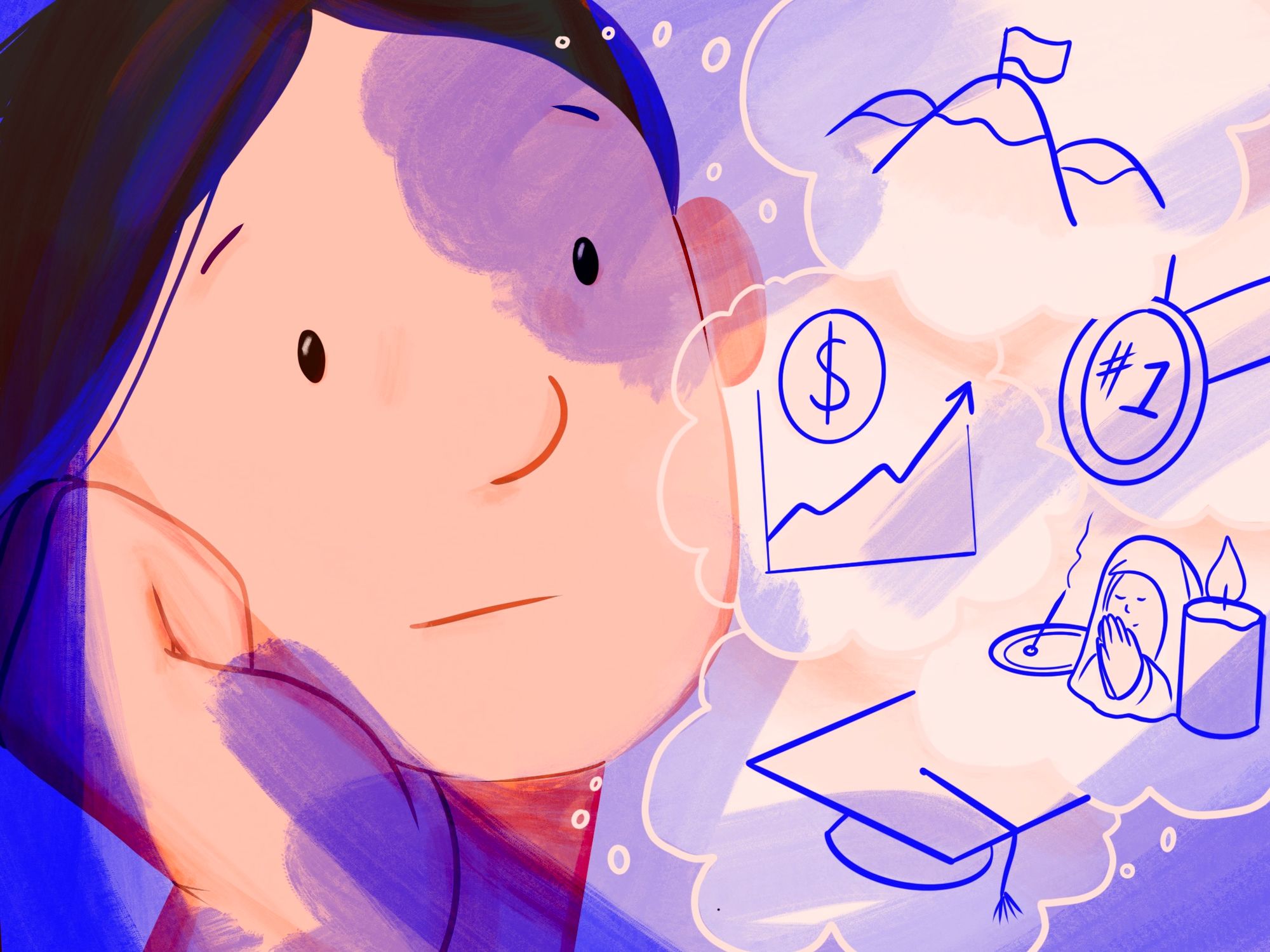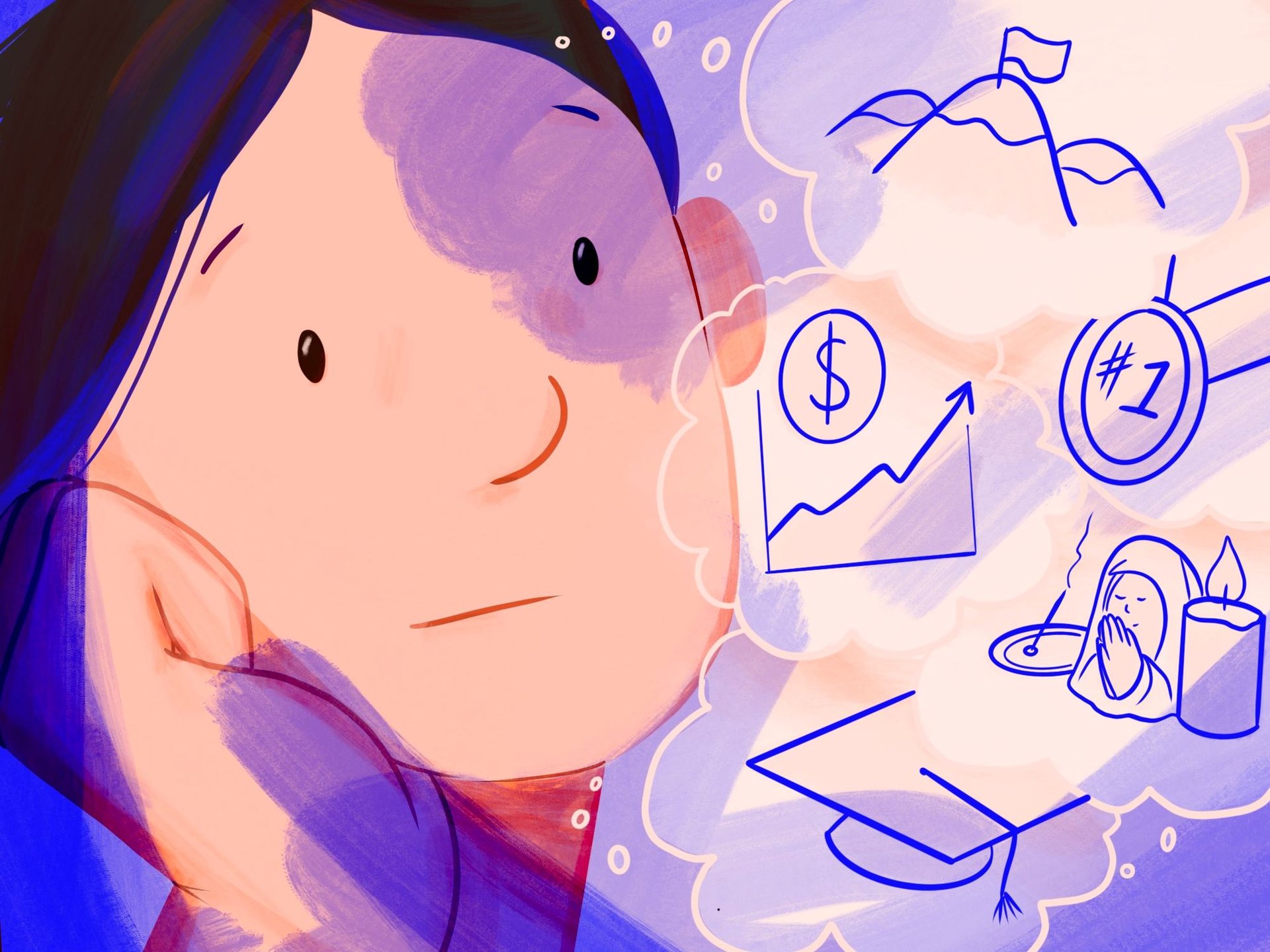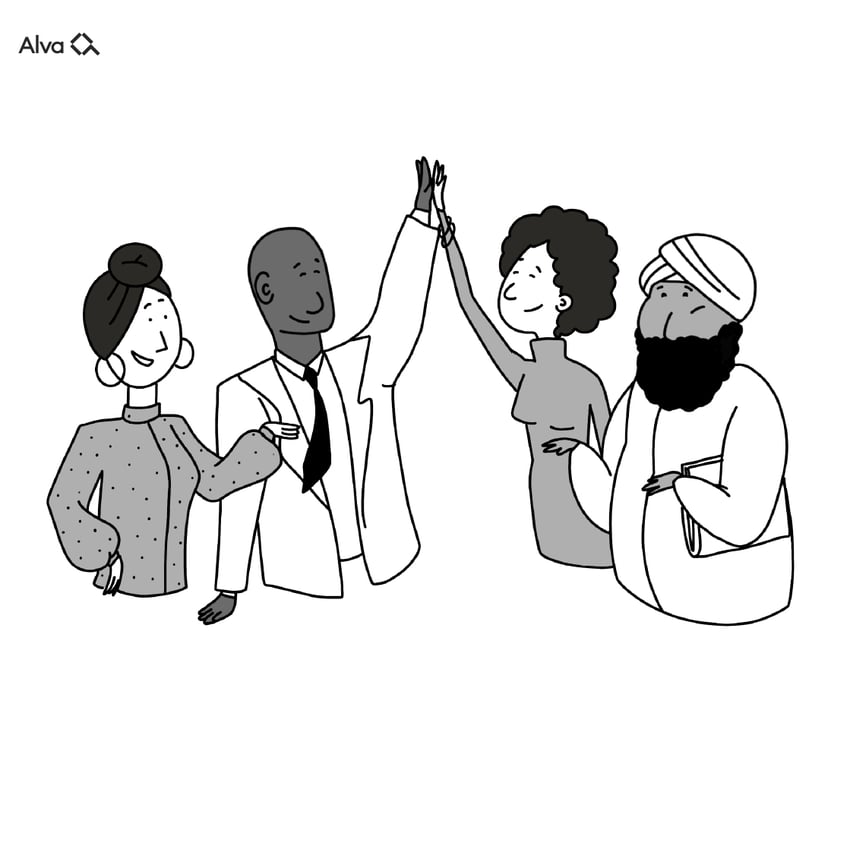Have you ever wondered what distinguishes these people from the rest of us? Is there something we can do to be more like them? And can we apply these learnings on an institutional level to drive success?
What is grit?
You may have heard of the book ‘Grit’ by MacArthur Fellow Dr Angela Duckworth (yes, that is the so-called ‘genius award'). Duckworth has popularised the theory that “Grit is passion and perseverance for long-term goals.”
In research literature, grit is another theorised personality trait; that means that, like “agreeableness” or “conscientiousness”, “grit” is a way for everyone to learn more about part of our personalities.

So ‘grit’ is a way to describe getting your head down and just doing it, just get it done, no matter how much you'd rather watch Netflix, scroll mindlessly or do something mindless like tidy your desk.
It’s consistently choosing the growth-route in life.
As a popular topic in the science of motivational psychology, we all want to have grit, and we want our colleagues to have it. But while what causes people to have differing levels of Grit is somewhat up for debate, researchers within the field have developed an understanding of something that’s much easier to measure and boil down into separate constructs; Psychological Capital.
What is psychological capital?
Psychological capital sprang out of the science of Positive psychology, and, in particular, a niche known as Positive Organizational Behavior (POB). POB is the study of “positively oriented human resource strengths and psychological capacities that can be measured, developed and managed for performance improvement in today’s workplace.“ (Luthans). Psychological capital can be divided into four subcategories:
Hope, Optimism, Resilience and Self-efficacy.
Hope: the drive (grit) and pathways to achieve one's goals
Optimism: attributing a positive way of looking at your ability to achieve success
Resilience: the ability to bounce back from adversity and successfully weather the storm
Self-efficacy: having trust and confidence in your own ability to manage a situation and effect change
What does science have to say about psychological capital and how this affects both business and people?
Hope in leadership
Luthans says “leaders’ hope has a significant positive impact on business unit financial performance, employees’ job satisfaction, and their retention”. And it makes sense, right? Having a leader with a clear vision about how to reach the company goals and having plenty of backbone to do so, can be a pretty solid source of inspiration. It keeps us going when the days are long, the deadlines are looming and the news is grim.
Optimism and performance
Being optimistic is sometimes easier said than done. We can all think of a time when being optimistic about the present and the future has had a positive effect. An American psychologist named Martin Seligman wanted to explore how potent optimism is in the workplace, so he ran an experiment that measured insurance agent’s success against their ratings of optimism.
As part of the trial, Seligman was able to employ - and therefore assess - insurance agents who had failed to pass the assessments used by the insurance company. So he had two ways to assess the agents: did they pass or fail the industry test? And how high were their levels of optimism?

The agents who failed this test but who scored in the top half of Seligman’s optimism assessment outsold pessimistic (bottom half) sales agents by 21 percent in their first year, and by 57 percent in their second year (Luthans). The pessimistic sales agents, by the way, had passed the industry tests.
The expression “fake it til’ you make it” comes to mind; For some, the confidence which comes with being optimistic does magic for results.
Resilience and strength
Resilience is pretty straight forward. Just like the intricate and hidden roots of a tree, resilience is rarely something we notice at a glance. But when a storm comes, the roots keep the tree in place. Luthans says “recent analyses by organizational scholars suggest that resilient people can thrive and grow through setbacks and difficulties. They bounce back not only to their original but to even higher levels of performance, and find meaning and value in their lives in the process”.
Self-efficacy & performance
Self-efficacy is when we have the belief that we have the ability to achieve goals. In the late 1970s, Canadian-American psychologist Albert Bandura identified self-efficacy as an individual's “confidence in his or her ability to mobilize the motivation, cognitive resources, and courses of action necessary to execute a specific course of action within a given context”.
The effect of self-efficacy is truly impressive. In meta-analytic research - a type of research that analyses data from many studies to find top-level trends - self-efficacy has been found to positively correlate with job-related performance (for the data-heads out there, that’s by a factor of 0.38, or 38%, aka moderately positive correlation). To put that into perspective, Luthans reminds us:
“This impact on performance is stronger than many established performance enhancement initiatives”.
How does Psychological Capital affect teams? What’s the evidence?
Since the emergence of the concept of psychological capital, research has understood this as something attributable to individuals. If organisations are nothing but individuals put together to work towards a unified goal and purpose, how does psychological capital affect teams?
Last year, the Covid-19 pandemic shook the world. Businesses all over the world were forced not only to handle the uncertainty of the near future, but also to rethink the way to do business in a post-pandemic world. In these trying times, researchers from University of Siegen in Germany, Grözinger, Wolff, Ruf & Moog (2021) looked at psychological capital in SMEs. They found that (surprise, surprise) psychological capital on an organisational level had a positive influence on something called “creative innovation through intangible resources”.
Or, more plainly, that the amount of psychological capital in the organisation predicted team-valuable behaviours such as cooperation and solidarity.
These in turn helped the organisation to withstand the effects of the pandemic. Truly something we’d all want in our team!
Can you optimise for Psychological Capital?
If you’d read this far, I hope my message has come across clear: Psychological capital for your organization is like Christmas spirit; the more the merrier. So how does one optimise for psychological capital?
There are different ways of managing and developing psychological capital among employees, but first of all, it’s important to understand some underlying premises in order to set yourself up for success. Just like in the experiment by Seligman, tests that measure very specific skills and abilities are fantastic at doing just that... but not in terms of assessing an individual’s potential.
A track-record of an individual's previous positions and projects tend to do the same thing. They tell you something about the past, but less about the future.
Luthans explains that in order to assess psychological constructs linked to potential, one should focus on key selection criteria where a willingness and ability to continuously learn and desire for participation and involvement are among the most important criteria.

The experienced HR or Talent Management professional notices that these two key criteria can be assessed using a five-factor personality assessment, that assesses Openness to Experience and Agreeableness, and with a structured interview using validated questions measuring these factors.
What to do if you think you’re running low on psychological capital?
So as we can tell from research on the topic, these “Power Rangers”constructs of psychology are unlike rigid personality traits.
Psychological capital are state-like constructs which means that one can manage and develop these (hooray).
- Hope is about having the drive and pathways to achieve goals. When employees experience having control of their work, and when managers treat them as if they are going to succeed, the feeling of agency and willpower tends to increase.
- Optimism can be developed using exercises where past failures and setbacks are seen as opportunities to learn and where managers and employees are given the benefit of the doubt, where the present is being viewed with thankfulness and contentment and where the future and the uncertainties it holds are embraced and approached with a confident and positive attitude.
- Resilience is not necessarily something we attain and lose, but a daily process. According to Luthans, resiliency can be developed in organisations through three different strategies.
- First off is a risk-focused-strategy. This strategy reduces factors that can increase the likelihood of undesired outcomes. For example, organisations can provide healthcare benefits, wellness programs and employee assistance programmes to reduce the probability of physical and psychological risks such as health problems, stress, burnout, alcohol and drug abuse.
- Second, organisations can have an asset-focused-strategy: factors that increase the probability of desired outcomes. This can equip managers and employees with resources needed to attain a proper work-life balance and more work-related resources directly associated with the work performance.
- Finally, a process-focused-strategy that revolves around organisational preparedness. For example, having a crisis management plan in place helps employees feel secure and ties into risk-mitigation.
To develop the sense of self-efficacy among managers and employees, the experience of success is a powerful and necessary tool for individuals to develop and in the long run maintain a high sense of self-efficacy in the workplace. Set high yet achievable, concrete and specific goals. In this way, individuals can get the experience and learn that hard work leads to success.
Whether it’s a manager or an employee having a great impact on others and the organisation, the resources needed in order to perform, withstand adversity and come out stronger than before can be explained and measured. More excitingly, they can also be managed and developed.
As a professional within HR and TA, the potential of an individual should be the top priority when assessing key criteria for a position. For the already existing teams, there are different ways and strategies to develop psychological capital and create a competitive advantage in business. By understanding how positive and personality psychology affect the performance of every person in your team, you are able to create the conditions for success, whatever the future holds.






